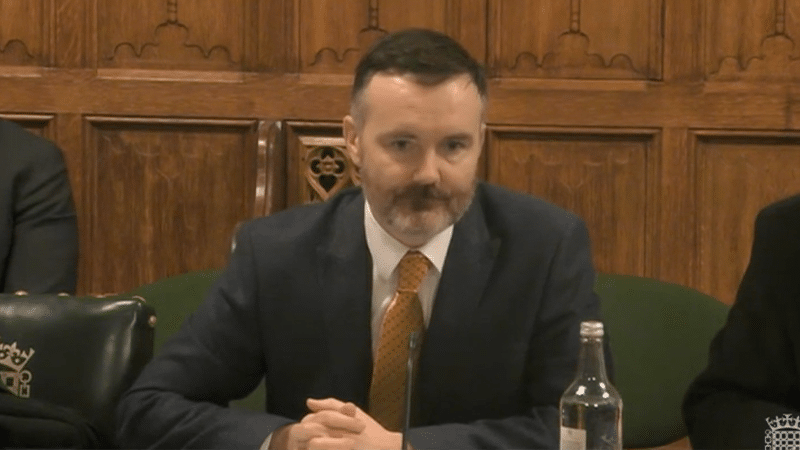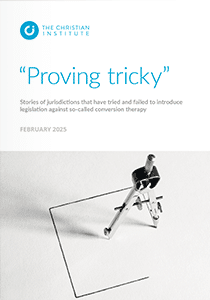The Christian Institute has warned a House of Commons committee that any conversion therapy ban must be clearly defined so as not to catch the ordinary work of churches.
Giving evidence as a key stakeholder to the Select Committee for Women and Equalities, the Institute’s Simon Calvert expressed concerns at activists pushing for a broad ban encompassing Christian parenting, prayer, preaching and pastoral care.
He said the push was ‘ideologically-driven’ with campaigners eager to hijack proposals in order to attack mainstream evangelical Christian beliefs and doctrine.
‘Theologically-based ban’
Calvert told Committee Chairwoman, Caroline Noakes MP: “If one friend at church asks another friend to pray with him, that’s not conversion therapy.
“If a church leader teaches from the Bible the Christian position on sexual ethics, that’s not conversion therapy. If parents lovingly and sensitively encourage their children to follow them in the footsteps of their faith, that’s not conversion therapy.
“My concern today is that there are some who want a ban which does encapsulate those things, and it concerns me that there seems to be a drive at least in some quarters for a very theologically-based ban that’s targeting a particular belief.not conversion therapy
“But the Christian sexual ethic – the belief that the only right context for sex is marriage, and that marriage can only be between a man and a woman – that is a belief which is protected by human rights laws”.
Criminally hazy
Calvert warned the Government to be “very careful” that it doesn’t allow “the understandable drive to address the issue of conversion therapy and people being coerced and abused” to be “twisted out of shape into a law that’s actually used to target people for holding the Christian sexual ethic”.
He also stressed that the law must be articulated more clearly than the current proposals set out in the Government’s consultation document, saying: “Since we’re talking about a criminal law, then it has to be very clear.
“If people are to lose potentially their livelihoods under any criminal law, we have a human rights obligation to make sure that law is clear and that people can understand it, and when they’re breaking it and when they’re not breaking it.
“If the conversion therapy ban is clearly expressed, and is tightly targeted at behaviour that is coercive and abusive, then I think that’s a law which is going to receive a lot of support. But if it is hazy – and there is a lack of detail in the Government proposal – then that’s a lot more concerning.”


